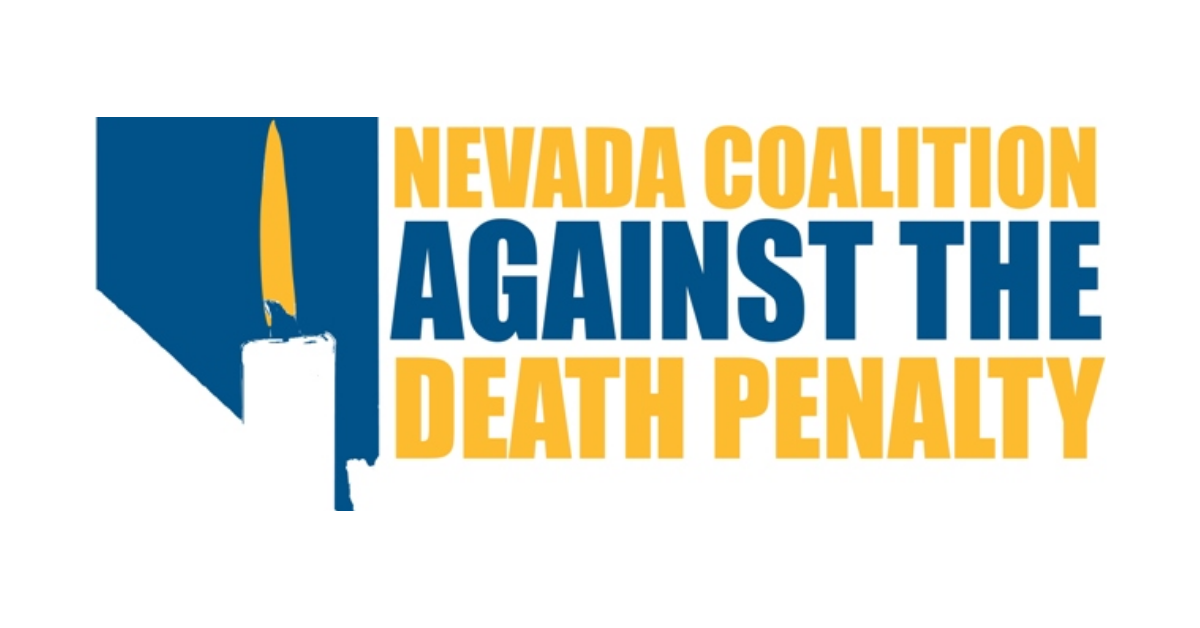Originally published in the Reno Gazette Journal, July 8th
By Drew Johnson
Do Gov. Steve Sisolak and Nevada’s state lawmakers believe white lives matter more than Black lives? Do they want to continue wasting taxpayers’ hard-earned money? Do they enjoy potentially killing innocent Nevadans?
We’ll find out during the special session of the Nevada Legislature, which begins today.
The special session is expected to address the budget shortfall spurred by the COVID-19 pandemic and racial justice issues highlighted by the Black Lives Matter protests in response to the killing of George Floyd by Minneapolis police. Fortunately, eliminating the state’s failed death penalty can go a long way towards tackling both wasteful spending and racial injustice in the state’s criminal justice system.
The Silver State squanders about $5.9 million a year by maintaining a death penalty rather than sentencing violent criminals to life in prison without parole, according to the Nevada legislative auditor. That money would come in very handy right now as state lawmakers scramble to address the $1.2 billion coronavirus-induced state budget shortfall.
In total, Nevada has wasted $85 million on death penalty prosecutions — and that eye-popping figure doesn’t include the $858,000 cost of building a still-unused execution chamber, the $321,000 in additional annual expenses to house prisoners on death row rather than in the general population, or the hundreds of thousands of dollars tossed at legal challenges in an attempt to secure a humane lethal injection drug.
In addition to wasting taxpayers’ hard-earned dollars, the death penalty might be the single most racially biased — and downright bigoted — policy in Nevada.
The death penalty places greater value on the lives of white people than the lives of minorities.
Prosecutors are more likely to seek the death penalty when the victim is white compared to when the victim is Black or Hispanic. Further, a Black individual is much more likely to be sentenced to death when the person killed is white than when a white person murders someone who is Black.
When a murder victim is white, the perpetrator is more likely to receive the death penalty than when the person killed is Black or Hispanic.
The disproportionate application of the death penalty is particularly striking here in Nevada. While Black people make up 10% percent of the state population, they account for 40 percent of the population on Nevada’s death row.
As the Nevada Legislature considers ways to address the unequal treatment of minorities by the state’s criminal legal system, the death penalty should be the first thing to go. Allowing it to continue is nothing more than state lawmakers declaring that Black lives don’t matter.
Not only is the death penalty undeniably racist and a colossal waste of money, it fails at its only job: deterring crime and protecting the public.
For years, people who support the government killing its citizens have argued the threat of execution reduces murders and other violent crimes.
But that claim is a lie that has been completely debunked.
The National Research Council reviewed all available studies and determined that the death penalty does not deter murder. On average, states with the death penalty actually have more murders and other violent crimes per capita than non-death penalty states.
In fact, seven of the 10 states with the highest per capita murder rates have the death penalty. Seven of the 10 states with the lowest per capita murder rates do not.
As if failing in its only purpose weren’t bad enough, the death penalty actually puts innocent lives at risk.
More than 160 Americans have been released from death row due to wrongful convictions, including Paul Browning. Browning, a Black man, was wrongfully convicted of robbing and murdering a white Las Vegas jewelry store owner in 1986.
After serving 33 years on death row for a crime he didn’t commit, Browning was finally released in August 2019 and formally exonerated earlier this year. A federal appeals court said Browning’s bogus conviction was the result of “a mixture of disturbing prosecutorial misconduct and woefully inadequate assistance of counsel.”
Others haven’t been as lucky as Browning.
About one in 25 people sentenced to death since America began reinstituting the death penalty in 1976 have been innocent, according to research conducted by the Proceedings of the National Academy of Sciences.
Some death penalty enthusiasts claim that allowing the government to kill people is the only way to ensure the most violent criminals never have the opportunity to commit additional crimes. That is simply not true.
In 1995, Nevada’s state lawmakers passed the toughest life without parole law in America. In the Silver State “life without parole” means “death in prison.” Once sentenced to life in prison without parole, the inmate never sets foot outside of the penitentiary. As a result, there’s not one single legitimate reason to continue with the death penalty in Nevada.
Nevada’s death penalty is a failure by any measure. It doesn’t make the public any safer, values white lives over the lives of minorities, wastes millions of dollars every year, and threatens innocent lives.
If Gov. Sisolak and state legislators are serious about closing the budget gap, proving that Black lives do matter in Nevada, respecting Nevadans’ tax dollars, and protecting the public, they will use the special session to end the death penalty once and for all.
This opinion column was by Drew Johnson, a Nevada resident who serves as a senior scholar at the National Center for Public Policy Research, a senior fellow at the Taxpayers Protection Alliance, and a member of Conservatives Concerned About the Death Penalty.



